July 8 stands as one of history’s most eventful days, witnessing the rise and fall of empires, groundbreaking discoveries, and moments that shaped our modern world across centuries of human achievement.
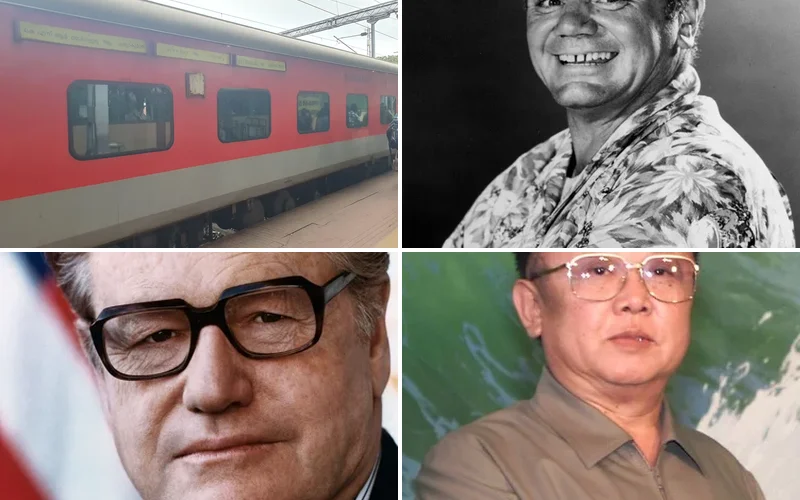
Politics and Government Events on July 8
1970 – Nixon Announces Native American Self-Determination Policy
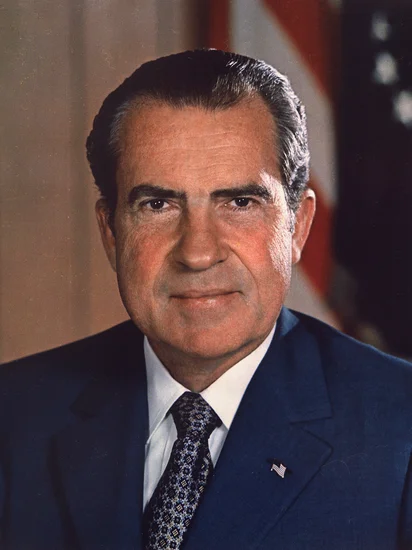
President Richard Nixon delivered a groundbreaking congressional message establishing Native American self-determination as official United States policy. This historic declaration marked a fundamental shift from previous government approaches to tribal sovereignty.
The policy announcement directly led to the Indian Self-Determination and Education Assistance Act of 1975. Nixon’s message recognized tribal nations’ rights to govern their own affairs and manage federal programs affecting their communities.
1994 – Kim Jong Il Assumes Supreme Leadership of North Korea

Kim Jong Il began his transition to supreme leadership of North Korea following his father Kim Il Sung’s death. The carefully orchestrated succession ensured continuity of the dynastic communist regime.
The leadership transfer established a precedent for hereditary succession in the communist state. Kim Jong Il’s ascension marked the beginning of his 17-year rule over North Korea.
2011 – Israel Launches Gaza Offensive
Israel initiated a major military offensive against Gaza amid escalating tensions following the kidnapping and murder of three Israeli teenagers. The operation marked a significant escalation in regional hostilities.
The offensive sparked international diplomatic efforts to broker a ceasefire. Military actions on both sides resulted in civilian casualties and widespread destruction across the Gaza Strip.
1966 – King Mwambutsa IV Deposed in Burundi
King Mwambutsa IV Bangiriceng of Burundi was overthrown by his own son, Prince Charles Ndizi, in a dramatic palace coup. The internal royal conflict destabilized the East African nation’s monarchy.
The deposition reflected growing tensions within Burundi’s traditional power structures. Prince Charles’s actions ultimately failed to bring stability to the troubled kingdom.
1912 – Royalist Attack on Portuguese Republic
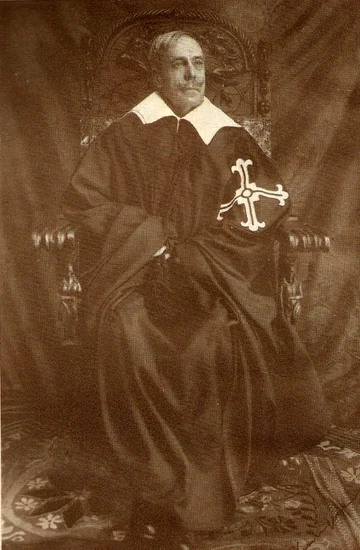
Henrique Mitchell de Paiva Couceiro led an unsuccessful royalist assault against the First Portuguese Republic in Chaves. The failed attack represented monarchist attempts to restore the old regime.
Republican forces successfully repelled the royalist incursion, strengthening the young republic’s position. The defeat marked the decline of organized monarchist resistance in Portugal.
1980 – Saddam Hussein Assassination Attempt
A failed assassination attempt against Iraqi president Saddam Hussein triggered the devastating Dujail Massacre over subsequent months. The botched plot unleashed brutal government retaliation against suspected conspirators.
Government forces systematically targeted the town of Dujail and its residents. The massacre later became key evidence in Saddam Hussein’s eventual war crimes trial.
Military and Naval History on July 8
1960 – Francis Gary Powers Charged with Espionage
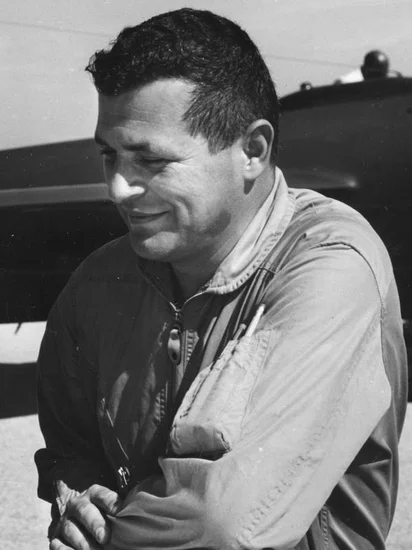
American pilot Francis Gary Powers faced espionage charges in the Soviet Union following his U-2 spy plane’s downing over Soviet territory. The incident created a major diplomatic crisis during the Cold War.
Powers’ capture exposed the extent of American aerial reconnaissance operations over the USSR. His eventual prisoner exchange became a defining moment in Cold War intelligence operations.
1948 – Women’s Air Force Program Established
The United States Air Force officially accepted its first female recruits into the Women’s Air Force program. This historic milestone opened new opportunities for women in military aviation.
The WAF program represented a significant advancement in women’s military service roles. Female recruits entered previously male-dominated fields including aircraft maintenance, communications, and administrative positions.
1962 – Rangoon University Student Union Destroyed
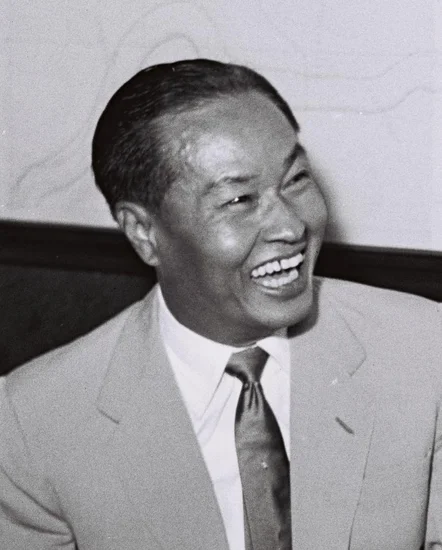
Burmese military leader Ne Win ordered the siege and destruction of Rangoon University’s Student Union building to crush student protests. The violent action demonstrated the military government’s intolerance of dissent.
Government forces used explosives to completely demolish the historic building. The attack marked a turning point in Burma’s relationship between military authorities and academic institutions.
1968 – Chrysler Wildcat Strike Begins
Auto workers initiated an unauthorized wildcat strike at Chrysler facilities in Detroit, Michigan, disrupting production lines across the company. The labor action highlighted growing tensions between management and union workers.
The strike reflected broader labor unrest in America’s automotive industry during the late 1960s. Workers demanded improved working conditions and better compensation packages.
Science and Discovery Milestones on July 8
1947 – Roswell UFO Incident Reported
Military officials broadcast reports that an unidentified flying object had crash-landed near Roswell, New Mexico, sparking decades of speculation. The initial announcement was quickly retracted and attributed to weather balloon debris.
The Roswell incident became America’s most famous UFO conspiracy theory. Despite official denials, the event continues to fuel debates about extraterrestrial visitation and government cover-ups.
1994 – Space Shuttle Columbia International Science Mission
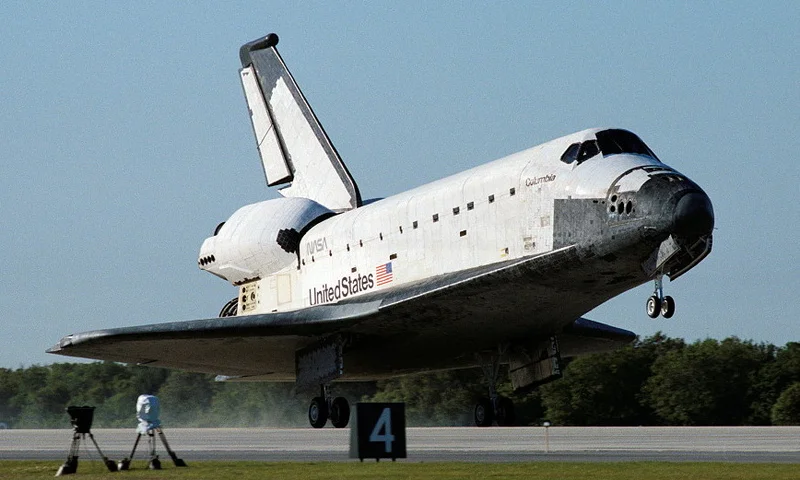
NASA launched Space Shuttle Columbia on an ambitious international science mission featuring experiments from multiple countries. The mission demonstrated growing international cooperation in space exploration.
Columbia’s crew conducted groundbreaking research in microgravity environments. The mission advanced scientific understanding of materials science, life sciences, and atmospheric physics.
2011 – Final Space Shuttle Mission Launches
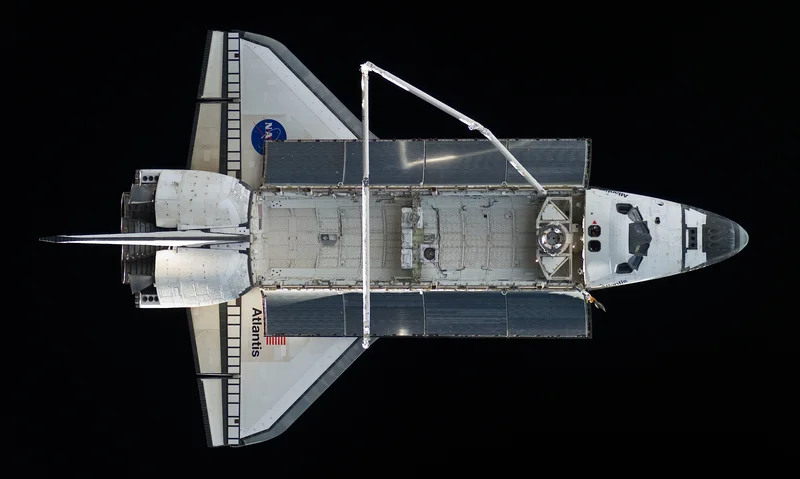
Space Shuttle Atlantis launched on the final mission of NASA’s Space Shuttle program, marking the end of an era in American space exploration. The historic flight concluded three decades of shuttle operations.
Atlantis carried essential supplies to the International Space Station. The mission’s completion left America temporarily dependent on Russian spacecraft for astronaut transportation.
Cultural and Arts Events on July 8
1932 – Dow Jones Reaches Depression Low
The Dow Jones Industrial Average plummeted to its lowest point during the Great Depression, closing at just 41.22 points. This devastating milestone reflected the economic catastrophe gripping America.
The record low represented an 89% decline from the market’s 1929 peak. Millions of Americans lost their life savings as the financial crisis deepened nationwide.
1972 – Ghassan Kanafani Assassinated
Israeli Mossad agents assassinated Palestinian writer and political activist Ghassan Kanafani in a targeted killing. The operation eliminated a prominent voice in Palestinian intellectual resistance.
Kanafani’s death shocked the literary world and intensified Palestinian-Israeli tensions. His novels and political writings continued to influence Middle Eastern literature posthumously.
1965 – Canadian Pacific Flight 21 Bombing
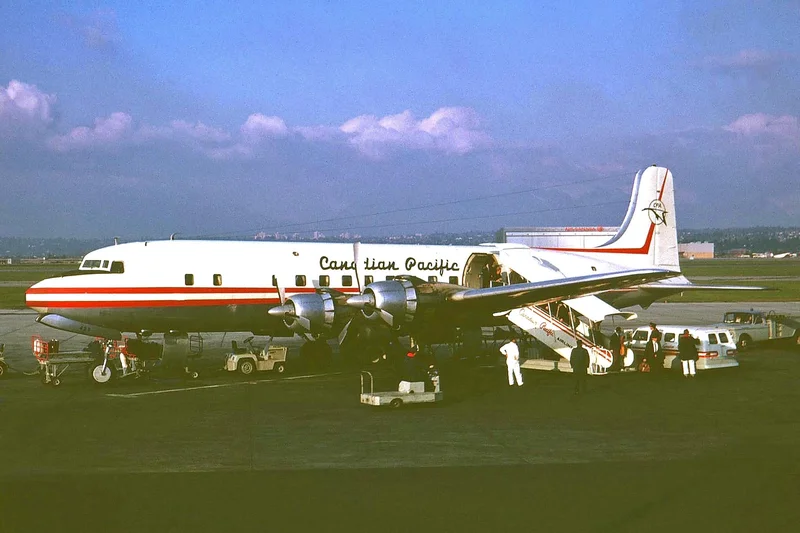
A bomb destroyed Canadian Pacific Air Lines Flight 21 near 100 Mile House, Canada, killing all 52 people aboard. The terrorist attack marked one of Canada’s deadliest aviation disasters.
Investigators determined the explosive device was planted in the aircraft’s cargo hold. The bombing highlighted vulnerabilities in aviation security systems during the 1960s.
Religious and Social Events on July 8
1937 – Treaty of Saadabad Signed
Turkey, Iran, Iraq, and Afghanistan signed the Treaty of Saadabad, establishing a regional non-aggression pact. The agreement promoted peace and cooperation among Middle Eastern nations.
The treaty created a framework for diplomatic cooperation in the region. Signatories committed to peaceful resolution of disputes and mutual respect for territorial boundaries.
1980 – State of Origin Rugby Inaugural Match
Queensland defeated New South Wales 20-10 in the inaugural State of Origin rugby league match at Lang Park. The game established Australia’s premier rugby league competition.
The match attracted enormous crowds and television audiences across Australia. State of Origin became an annual tradition celebrating interstate rugby league rivalry.
1933 – Australia-South Africa Rugby Test Match
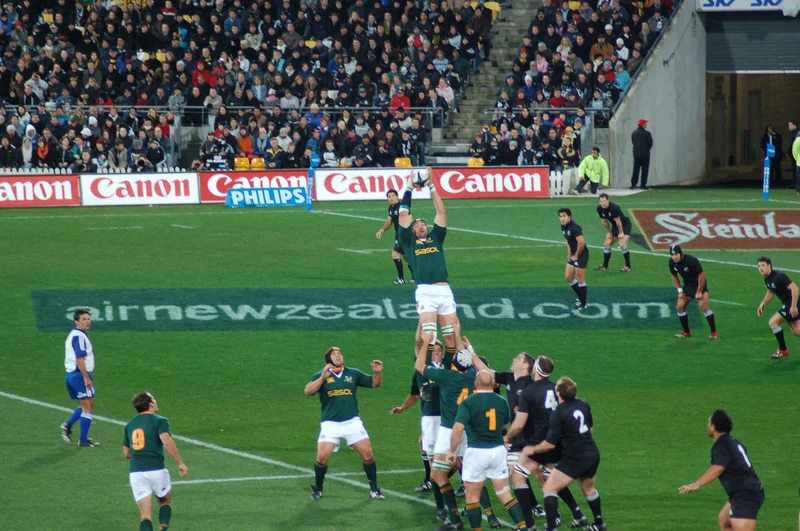
The first rugby union test match between Australia’s Wallabies and South Africa’s Springboks took place at Newlands Stadium in Cape Town. The historic encounter established an enduring international rugby rivalry.
The match marked the beginning of regular competition between the two rugby powerhouses. Both teams demonstrated exceptional skill in front of enthusiastic South African crowds.
Business and Economic Events on July 8
1932 – Great Depression Market Low
The Dow Jones Industrial Average reached its devastating low point of 41.22 during the Great Depression’s worst phase. This catastrophic decline wiped out millions of dollars in investor wealth.
The market collapse reflected the broader economic devastation affecting American businesses and workers. Recovery would take years as the nation struggled through unprecedented financial hardship.
1968 – Chrysler Workers Strike
Unauthorized wildcat strikes began at Chrysler manufacturing facilities in Detroit, disrupting automobile production across the company. Workers demanded better wages and improved working conditions.
The labor action reflected growing tensions between automotive workers and management. Union officials scrambled to regain control of the unauthorized work stoppage.
1980 – Economic Tensions Rise
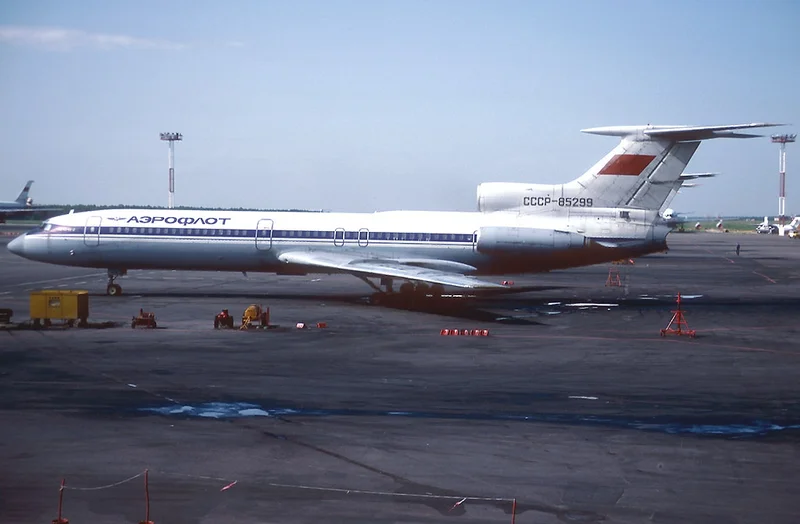
Multiple economic pressures converged as inflation and unemployment simultaneously plagued major industrialized nations. Governments struggled to implement effective monetary policies.
Central banks faced difficult choices between controlling inflation and maintaining employment levels. The economic climate contributed to political instability in several countries.
Transportation and Infrastructure on July 8
1980 – Aeroflot Flight 4225 Crashes
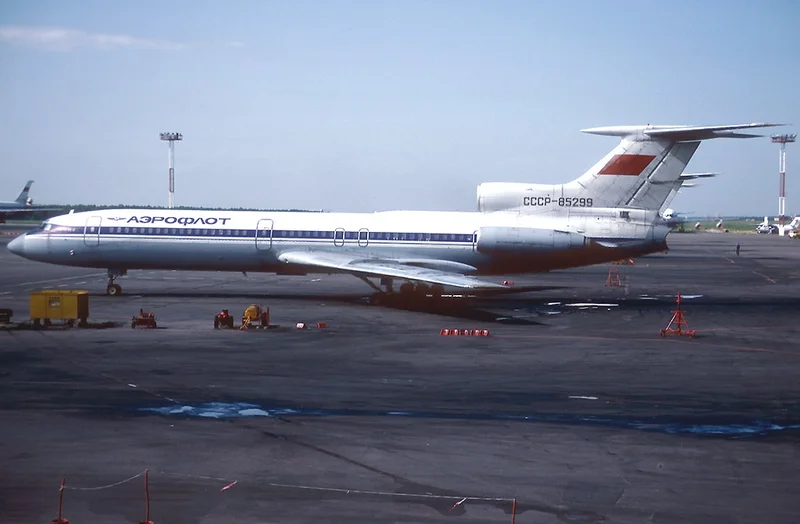
Aeroflot Flight 4225 crashed near Almaty International Airport in Kazakhstan, killing all 166 people aboard. The disaster ranked among the Soviet Union’s deadliest aviation accidents.
Investigators examined mechanical failures and weather conditions as potential causes. The crash highlighted safety concerns within the Soviet aviation system.
1988 – Indian Train Disaster

The Island Express train derailed on the Peruman bridge and plunged into Ashtamudi Lake in Kerala, India, killing 105 passengers. The tragedy shocked the nation and raised questions about railway safety.
Rescue operations continued for hours as divers searched the lake for survivors. The disaster prompted comprehensive reviews of India’s railway infrastructure and safety protocols.
2003 – Sudan Airways Flight 139 Crashes

Sudan Airways Flight 139 crashed during an emergency landing attempt at Port Sudan Airport, killing 116 of 117 people aboard. The lone survivor’s escape seemed miraculous given the crash’s severity.
The aircraft experienced mechanical difficulties shortly after takeoff. Emergency response teams worked frantically to reach the crash site and assist survivors.
Sports and Recreation on July 8
2014 – Brazil Suffers Historic World Cup Defeat
Brazil’s national football team suffered a devastating 7-1 defeat to Germany in the FIFA World Cup semi-finals, shocking millions of Brazilian fans. The loss became known as the “Mineiraço” after the stadium where it occurred.
The defeat represented Brazil’s worst-ever World Cup performance on home soil. German players scored five goals in an incredible 18-minute span during the first half.
1980 – Queensland Wins First State of Origin
Queensland defeated New South Wales 20-10 in the inaugural State of Origin rugby league match at Lang Park in Brisbane. The victory established Queensland’s early dominance in the new competition format.
The match attracted record television audiences across Australia. State of Origin transformed rugby league by allowing players to represent their birth states rather than current teams.
1933 – Historic Rugby Test Match
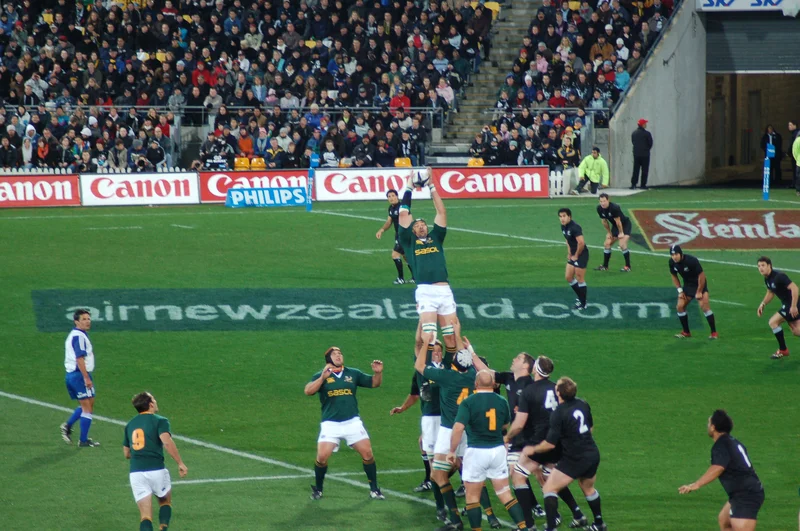
Australia’s Wallabies faced South Africa’s Springboks in their first rugby union test match at Cape Town’s Newlands Stadium. The encounter marked the beginning of one of rugby’s greatest international rivalries.
Both teams displayed exceptional skill and determination throughout the match. The game established a tradition of competitive excellence between the two rugby nations.
Notable Births on July 8
1958 – Kevin Bacon, American Actor
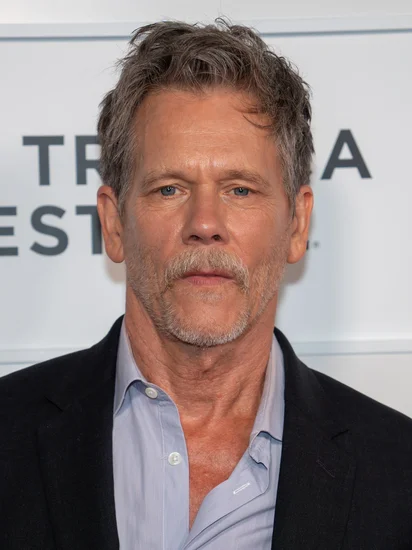
Kevin Bacon was born in Philadelphia, Pennsylvania, destined to become one of Hollywood’s most recognizable character actors. His early interest in theater shaped his future career trajectory.
Bacon would later star in iconic films including “Footloose” and “Apollo 13.” His prolific career inspired the popular “Six Degrees of Kevin Bacon” parlor game.
1969 – Anjelica Huston, American Actress
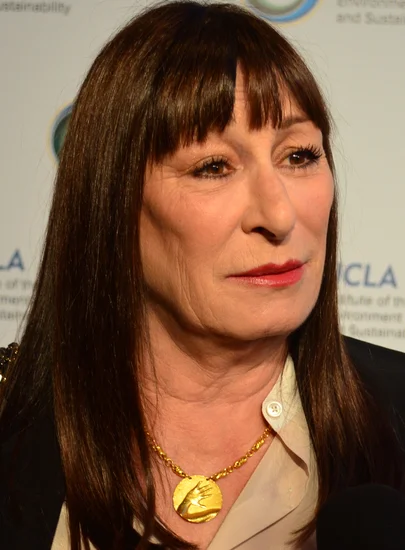
Anjelica Huston entered the world in Santa Monica, California, born into a legendary Hollywood family. Her father John Huston was already an established director and actor.
Huston would win an Academy Award for her role in “Prizzi’s Honor.” Her distinctive screen presence made her one of cinema’s most compelling character actresses.
1970 – Beck, American Musician

Beck Hansen was born in Los Angeles, California, into a family with strong artistic connections. His early exposure to diverse musical genres influenced his eclectic artistic style.
Beck would revolutionize alternative rock with his innovative sampling techniques and genre-blending approach. His album “Odelay” became a defining work of 1990s alternative music.
1991 – Virgil van Dijk, Dutch Footballer

Virgil van Dijk was born in Breda, Netherlands, beginning a journey that would lead to football stardom. His early development in Dutch youth academies shaped his defensive skills.
Van Dijk would become one of the world’s premier center-backs at Liverpool. His leadership and defensive prowess helped Liverpool win both Premier League and Champions League titles.
1992 – Son Heung-min, Korean Footballer

Son Heung-min was born in Chuncheon, South Korea, into a family with strong sporting traditions. His father’s athletic background influenced his early football development.
Son would become the first Asian player to score 100 Premier League goals. His success at Tottenham Hotspur made him a global football icon.
1998 – Jaden Smith, American Actor

Jaden Smith was born in Malibu, California, to superstar parents Will Smith and Jada Pinkett Smith. His early exposure to entertainment industry shaped his career ambitions.
Smith would star alongside his father in films like “The Pursuit of Happyness.” His acting and music careers developed simultaneously throughout his teenage years.
1998 – Maya Hawke, American Actress

Maya Hawke was born in New York City to actors Ethan Hawke and Uma Thurman. Her parents’ acclaimed careers provided early exposure to professional acting.
Hawke would gain recognition for her role in “Stranger Things.” Her breakthrough performance demonstrated her ability to step out of her famous parents’ shadows.
1972 – Sourav Ganguly, Indian Cricketer
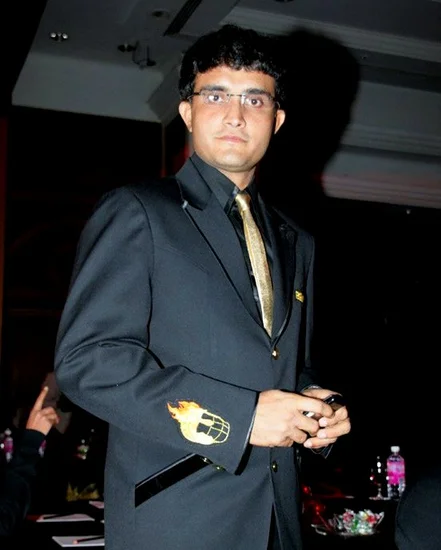
Sourav Ganguly was born in Calcutta, India, into a family passionate about cricket. His early training at local clubs developed his batting and leadership skills.
Ganguly would captain India’s national cricket team to numerous victories. His aggressive leadership style transformed Indian cricket’s international competitiveness.
1908 – Nelson Rockefeller, American Politician
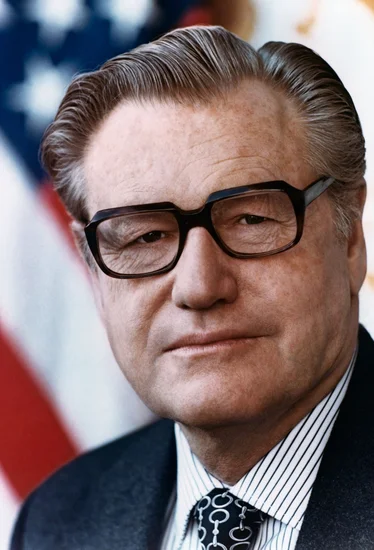
Nelson Rockefeller was born in Bar Harbor, Maine, into America’s wealthiest family. His privileged upbringing provided access to elite educational institutions and political connections.
Rockefeller would serve as Vice President under Gerald Ford. His political career spanned decades as both New York Governor and federal government official.
1934 – Marty Feldman, English Comedian
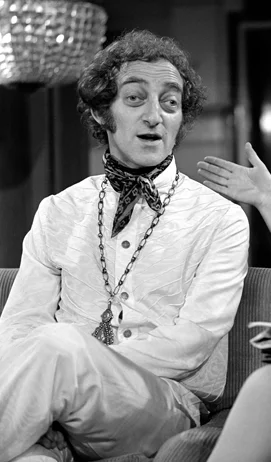
Marty Feldman was born in London, England, developing his distinctive comedic style through British television and radio. His unique physical appearance became part of his comedic persona.
Feldman would achieve international fame in Mel Brooks films. His collaborations with Brooks established him as a master of physical comedy.
Notable Deaths on July 8
1994 – Kim Il Sung, North Korean Leader
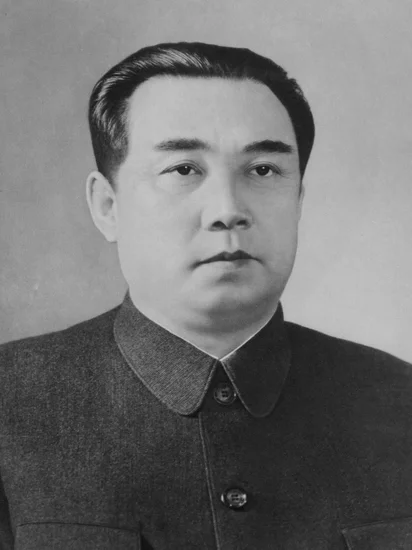
Kim Il Sung died in Pyongyang, North Korea, ending his 46-year rule as the communist nation’s founding leader. His death marked the end of an era in Korean Peninsula politics.
Kim’s passing triggered an elaborate state funeral and mourning period. His son Kim Jong Il’s succession ensured continuity of the dynasty’s authoritarian rule.
2022 – Shinzo Abe, Japanese Prime Minister
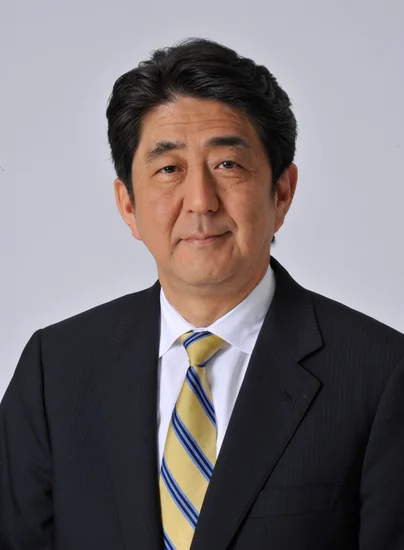
Shinzo Abe was assassinated in Nara, Japan, while delivering a campaign speech, shocking the nation and world. The attack occurred despite Japan’s traditionally peaceful political environment.
Abe’s death sent shockwaves through Japanese politics and international diplomatic circles. His lengthy tenure as Prime Minister had significantly influenced Japan’s modern political landscape.
1979 – Robert Burns Woodward, American Chemist
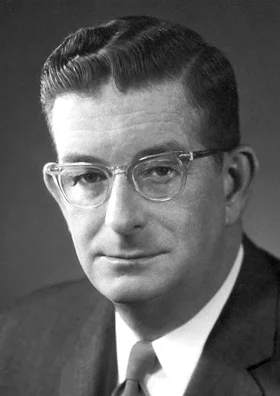
Robert Burns Woodward died in Cambridge, Massachusetts, after revolutionizing organic chemistry through his synthetic achievements. His Nobel Prize-winning work advanced pharmaceutical development.
Woodward’s death marked the loss of one of chemistry’s greatest minds. His synthetic methods enabled the creation of numerous life-saving medications and chemical compounds.
1967 – Vivien Leigh, British Actress

Vivien Leigh died in London, England, after a distinguished career that included two Academy Awards. Her performances in “Gone with the Wind” and “A Streetcar Named Desire” defined classic Hollywood cinema.
Leigh’s death at age 53 cut short a brilliant acting career. Her portrayal of Scarlett O’Hara remained one of cinema’s most iconic performances.
1972 – Ghassan Kanafani, Palestinian Writer
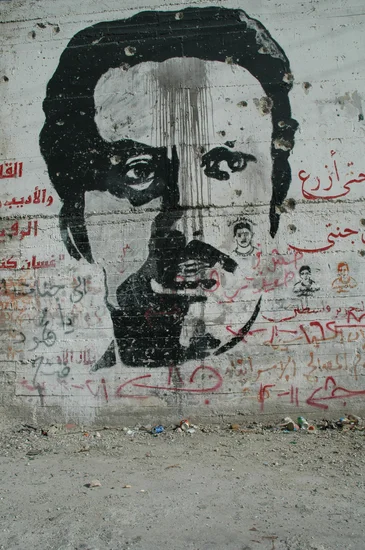
Ghassan Kanafani died in Beirut, Lebanon, killed by an Israeli car bomb targeting his political activities. His assassination silenced one of Palestine’s most eloquent literary voices.
Kanafani’s death devastated the Palestinian intellectual community. His novels and short stories continued to influence Middle Eastern literature long after his death.
2011 – Betty Ford, American First Lady
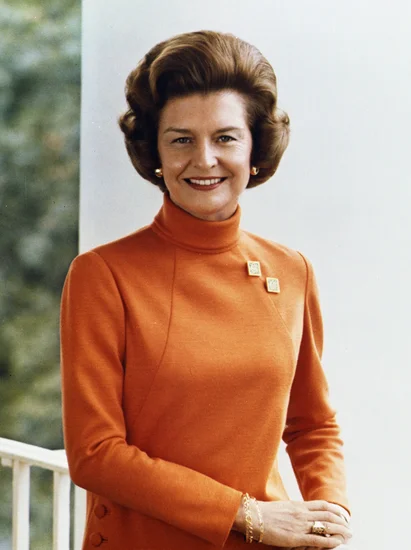
Betty Ford died in Rancho Mirage, California, after a life dedicated to public service and addiction recovery advocacy. Her candid approach to personal struggles inspired millions of Americans.
Ford’s death marked the loss of a pioneering advocate for women’s rights and substance abuse treatment. The Betty Ford Center became her lasting legacy to addiction recovery.
1999 – Pete Conrad, American Astronaut
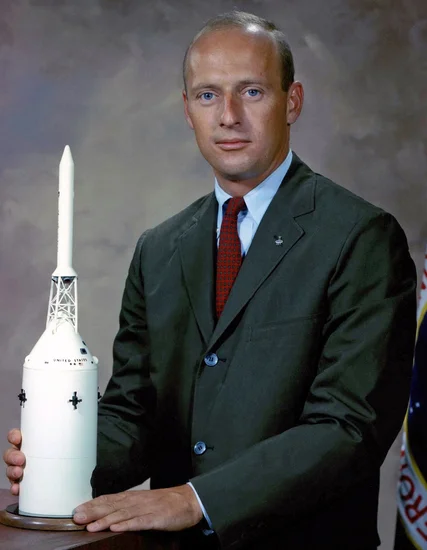
Pete Conrad died in Ojai, California, from injuries sustained in a motorcycle accident. The third person to walk on the moon’s death shocked the space community.
Conrad’s death ended the life of one of NASA’s most colorful astronauts. His irreverent humor and skilled piloting made him a favorite among space program veterans.
2012 – Ernest Borgnine, American Actor
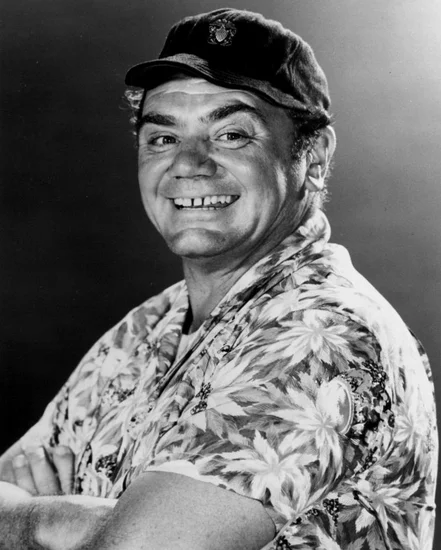
Ernest Borgnine died in Los Angeles, California, after a career spanning over six decades in film and television. His Academy Award-winning performance in “Marty” showcased his dramatic range.
Borgnine’s death marked the end of an era in Hollywood character acting. His distinctive voice and presence made him instantly recognizable to multiple generations of viewers.
2020 – Naya Rivera, American Actress

Naya Rivera died in Lake Piru, California, in a tragic drowning accident while boating with her young son. Her death shocked fans of the television series “Glee.”
Rivera’s death highlighted the dangers of recreational boating activities. Her final act of saving her son demonstrated her devotion to motherhood even in her final moments.
Holidays and Observances on July 8
Saints Peter and Fevronia Day
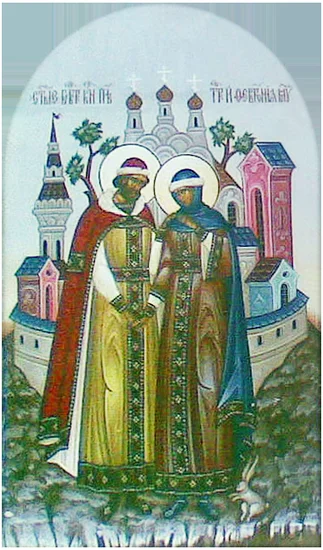
Russian Orthodox Christians celebrate Saints Peter and Fevronia Day, honoring the patron saints of love and marriage. The holiday promotes family values and marital devotion throughout Orthodox communities.
Couples often choose this day for weddings and renewal of vows. The saints’ legendary love story continues to inspire romantic traditions across Russia and Orthodox regions.
Air Force and Air Defense Forces Day
Ukraine commemorates Air Force and Air Defense Forces Day, recognizing the contributions of military aviation personnel. The observance honors both active service members and veterans of aerial warfare.
Military demonstrations and ceremonies mark the holiday across Ukrainian airbases. The day emphasizes the importance of air defense in national security strategy.
Christian Feast Day Observances
Multiple Christian saints receive commemoration on July 8, including Kilian and Totnan, Sunniva and companions, and Theobald of Marly. These diverse observances reflect the rich tapestry of Christian martyrdom and devotion.
Churches worldwide hold special services honoring these saints’ sacrifices and teachings. The feast day traditions connect modern believers with early Christian history and spiritual heritage.
